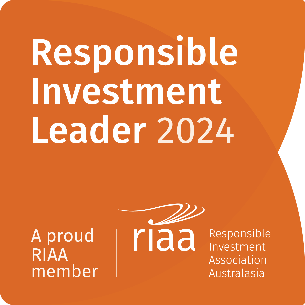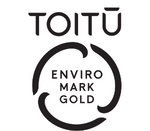2021 Likely another strong year for Equities

4th February 2021: This month’s interest piece was written by our Chief Investment Officer, Mark Brown. Whilst anyone could be forgiven for superficially predicting that after 10-years of unrelenting strength global equity markets were due for a correction, this would not be our view. Whilst we have sympathy for the “reversion to mean” argument we don’t believe that it is a valid thesis for 2021. In fact, our view is that 2021 will probably be another strong year for equity investments and that there are numerous good reasons to support this positive view. In a somewhat perverse way, the phenomenal rebound of equity markets in the face of the COVID-19 pandemic gives us an insight into the global appetite for equities over other forms of investment. Clearly, there are always risks but a combination of low bond returns, improving global trade, fiscal stimulus, vaccines and corporate earnings improvement supports our view. This synchronicity in global stimulus and recovery could mean that our moderately positive outlook for 2021 may well be too conservative.
Monetary policy, largely the responsibility of central banks around the world has been the most influential driver of economic growth. The GFC, a period of very low inflation and the COVID-19 pandemic have led to historically low-interest rates supported by a combination of very low cash rates and quantitative easing programs. In NZ not only has the Reserve Bank begun a program of quantitative easing, allowing the Bank to purchase $100bn of bonds by June 2022, but has also openly discussed the possibility of a negative cash rate if needed. Post COVID-19 we have seen a greater willingness by governments to help shoulder this burden and have begun to see a strong partnership develop between monetary and fiscal policy. In fact, we believe that fiscal authorities will continue to be uncharacteristically generous, with fiscal austerity effectively untenable from a political perspective. In a recent briefing, the IMF urged countries to continue strong fiscal and monetary efforts to support their economies with IMF spokesperson Gerry Rice saying, “it was certainly no time to let up our efforts.” This may well create significant issues further down the track, particularly with respect to global debt levels, but in the short term will continue to be very stimulatory.
The outcome of the US election will be positive for GDP growth with significant fiscal stimulus proposed. Credit Suisse estimate that the proposed combination of short-term handouts worth $350bn and a longer-term investment programme of $2trn amounts to a whopping 10.8% of GDP. The short-term stimulus effectively targets sectors of the economy with the highest propensity to consume ensuring maximum impact to GDP. In the 1990’s we had the “Greenspan Put”, which was essentially perpetual monetary policy loosening to support the economy, today we believe we effectively have the “Biden Put” where fiscal policy stimulus will seek to underwrite both a US and global recovery. Lending support to this view was Janet Yellen, the current US Secretary of the Treasury and former Chair of the Federal Reserve, appearing recently before the Senate Finance Committee stating that “the most important thing in my view we can do today to put us on a path to fiscal sustainability is to defeat the pandemic; to provide relief to American people, and then make long-term investments that will help the economy grow.” Australia and New Zealand governments have also been fiscally supportive with the total Australian stimulus, one of the world’s largest (including State governments) at $232bn or 12% of GDP. The following graph by Credit Suisse highlights the fiscal response by governments to the COVID-19 crisis supporting the economic recovery into 2021.

Bonds have always been the risk diversifying asset class implicit in any investment portfolio and as such the major alternative when considering equities. Given the near-historic levels of interest rates, we think bonds will battle to produce positive returns. The important point about equities is that they are in many respects an inflation hedge. The following graph by Andrew Lees from Macro Strategy illustrates that investors in the US 10-year bond are currently accepting a negative 1.04% return in real terms. JP Morgan estimates a near doubling of the nominal US 10-year bond rate as generous government spending and a global vaccine rollout increase inflation expectations. None of this supports positive outcomes for bond investors and makes equity investments a far more appealing option, encouraging further switching by both institutional and private investors between asset classes.

Furthermore, data suggests that mild increases in inflation are positive for equity returns. Research conducted by Andrew Garthwaite at Credit Suisse indicates that rising inflation is good for equity valuations until it exceeds 3%. The St Louis Federal Reserve has the 10-year breakeven inflation rate calculated at 2.1% which again is a positive for equities.
Whilst we continue to believe that monetary policy will remain supportive, we do feel that we are at the peak of global monetary policy support. Quantitative easing has had the required effect on yields across the curve, helping to boost economic growth. Whilst we think leadership will be patient in tapering their bond purchase programmes, we think that as Reserve Banks re-inflate their economies the need to continue with large scale bond purchases will abate. According to Reuters, expectations are that the Federal Reserve will begin paring back its bond purchases this year and phasing it out completely by the second half of 2023. This combination of reduced Reserve Bank purchases and increased Government issuances to fund fiscal policy expansion should see yield curves continue to steepen, further underpinning the investment case for equities over bonds.
Current estimates suggest we have approximately $18trn of negative-yielding debt globally. To this end, Credit Suisse refers to bonds as a non-diversifying return-less risk that should start to see a bond-to-equity switch.
Investment markets are never without risk and key aspects that we will be keeping an eye on this year include geo-political tensions, particularly around China, the potential impact of COVID mutations on vaccinations and infection rates and any significant surge in inflation (we expect a short term blip mainly due to constrained supply chains).
M&A activity has been quiet through 2020 but we have started to see the early stages of renewed interest driving valuations and fueling speculation across a range of sectors. In New Zealand, the NZ$5.4bn unsolicited offer for Infratil by the Australian Super Fund came as a surprise for what were some fully priced assets in a well-managed investment vehicle. In the UK, deal revival has seen amongst others a bid by MGM Resorts for Entain PLC a British sports betting and gambling company whose share price was hit hard by the COVID -19 pandemic. This $11bn unsolicited bid comes alongside other recently announced takeover battles for Signature Aviation and the Codemasters Group. According to Preqin’s 2nd quarter report in 2020, private equity is currently sitting on approximately $1.5 trillion of ungeared investment capacity after growing at an annual rate of 14% since 2014. This comes at a time when debt is historically cheap and corporates have by-in-large repaired their balance sheets through a combination of equity issuance and dividend postponement. In the absence of M&A, we fully expect to see the resumption of corporate buybacks in a post- COVID -19 environment as boards begin to regain confidence about the economic outlook.
Supporting both this M&A and a stronger equity market is our view that earnings momentum will be positive into 2021. In Australia, consensus estimates are for earnings to grow by 20% in the coming year with strong contributions coming from the resource sector which is benefitting from extraordinary strength in commodity prices. Whilst global equity earnings forecasts have continued to be revised upward by approximately 20%, UBS strategists believe this is still too low and expect continued improvement to both actual and expected earnings outcomes. They predict that earnings forecasts for the near-term reporting season are still 10% too low.
Whilst COVID-19 infections continue to soar globally we feel we are closer to the end of the pandemic than ever before, with countries like Israel leading the way with respect to vaccinations. With the biggest inoculation campaign in history well underway, we think the time is right to look forward positively. Bloomberg estimates the daily rate of vaccinations globally to be 2.95 million with this number set to escalate as countries race to counter the current spread. In New Zealand and Australia, we have already seen strong re-opening momentum with companies like Super Retail experiencing exceptional sales growth. We believe this will continue and look forward to further global re-opening positivity bringing a strong resurgence in corporate earnings, especially to those in the service and travel-related sectors. This would be a significant boost to the New Zealand economy with Tourism directly contributing $16.2bn or 5.8% to 2019 GDP.
We concur with the bullish Federal Reserve Vice Chair Richard Clarida when he said that the US economy was headed for an “impressive year” as the impact of coronavirus vaccines takes hold and with the potential for larger government spending under President Biden. We think this holds for New Zealand and Australia as well, and believe the combination of low-interest rates, fiscal stimulus and post COVID re-opening will support equities providing another positive year for investment returns.





